10 games that would make perfect TV shows
Following the Witcher Netflix series, here are 10 games that would make perfect TV shows

Although Hollywood studios have tried to make a buck on live-action film adaptations of video games for decades, aside from a collection of best video game movies, rarely do these attempts give us the kind of movie worth caring about as much as the games we play and love.
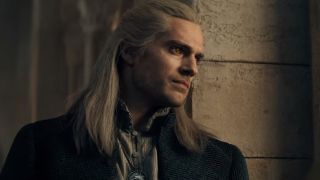
TV, on the other hand, seems to be ahead of the curve, especially with the recent success of The Witcher Netflix series. Granted, the series was inspired by Andrzej Sapkowski’s written works which, in turn, became the basis of CD Projekt Red’s acclaimed action RPG trilogy. But, let’s face it, The Witcher entered Netflix’s radar thanks to the success of the games. Even Henry Cavill got himself cast as mutated monster hunter Geralt of Rivia, in part, because he’s a gamer who can’t get enough of The Witcher 3: Wild Hunt. Which made us think, which games or game series would be perfect for TV adaptation?
It has to be those with interesting characters, storylines and the kind of deep lore that sometimes needs more room to breathe than the two-hour runtime of a feature film. So here are the top 10 games that would be absolutely perfect for TV adaption.
NOTE: Spoilers to follow, so tread lightly.
God of War
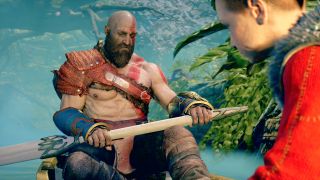
This was obvious even before God of War director Cory Barlog suggested his critically-renowned PS4 exclusive would lend itself well to a Netflix-style series, but his endorsement certainly helps.
The original games - also exclusive to Sony consoles and set among the myths of ancient Greece - were never heavy on characterization and story. Sure, Kratos had his tragic reasons for setting out to murder every man, god, and titan who got in his way, and Greek mythology is rife with sordid, gripping tales. But, when you get down to it, the original God of War trilogy worked chiefly because it was fun to slash apart satyrs with some sweet looking swords attached to chains and pummel Zeus’s head into mush.
That’s not great TV. But here’s what is: a father trying to raise an adolescent son he kept at arm’s length for too long, largely because of his bottled rage and shame for his past sins. That level of pathos introduced in Sony’s 2018 franchise reboot makes all the difference. Plus, that instalment opened up all sorts of possibilities to explore ancient gods from cultures across the globe, all while telling a human story of a father, a son, and the boy’s mysterious mother Faye.
Sign up to the GamesRadar+ Newsletter
Weekly digests, tales from the communities you love, and more
Picture the use of Arrow-like flashbacks to tell parallel stories featuring Kratos’s origins in Greece or even explore Faye’s journey before Kratos arrived among her others from Norse mythology. There’s so much untapped potential within the relationship between Kratos and young Atreus, and TV has what it takes to bring their story to the masses the right way.
Metal Gear
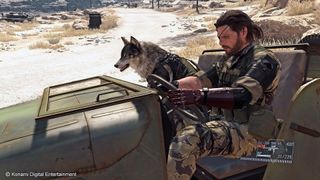
From Big Boss to Solid Snake, and all the clones and doppelgangers in between, Hideo Kojima’s beloved tactical espionage action series is full of lore and political intrigue that screams “binge-watching session”.
Across all the Metal Gear games produced by Konami under the guidance of Kojima since 1987, the series explores ethical conundrums few games had considered either before or since. Nuclear proliferation, the ethics of cloning and genetic engineering, nanotechnology, and Cold War politics all would make for interesting themes to see breathe and be deconstructed during full seasons of TV, rather than crammed into a film or two.
Notorious for its lengthy cutscenes and long sections of little else but dialogue, Metal Gear feels readymade for a TV show, as it imagines a world where walking tanks are armed with nuclear missiles and super soldiers are just pawns in a greater game. It’s cast of over-the-top villains across five decades worth of story would work well in an episodic setting, too, in much the same way Netflix’s The Witcher gave Geralt something to resolve within each episode.
Assassin's Creed
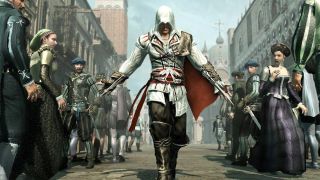
Ever sit down to watch the 2016 film starring Michael Fassbender? It… wasn’t great. Film just isn’t the right medium for the millennia-old rivalry between the Assassins and the Templars. It’s sci-fi elements really need more explanation than a movie would ever allow for. Better for a TV series to show how the Animus permits modern-day humans to experience the memories of their ancestors in order to track down artifacts of great power. Teasing out these Pieces of Eden and their origins over 10 episodes could build some serious intrigue from pilot to series finale.
Even if a show based on the popular Ubisoft series dropped the present-day meta story altogether, Assassin’s Creed would be ripe for an anthologized season structure. One season could go back to the Italian Renaissance, following the charismatic Ezio Auditore on his path to becoming one of the most revered assassins. Another could visit the American Revolution and the father-son struggle between Assassin Connor and his British Templar father Haytham Kenway. There’s no shortage of already established stories from various time periods to revisit.
As historical fiction, an Assassin’s Creed series could contextualize the past for modern audiences, especially those unfamiliar with, say, The Crusades or the Bolshevik Revolution.
Oregon Trail
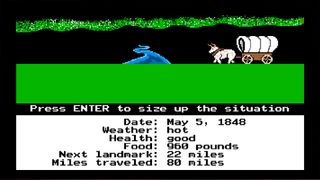
Remember the game that taught children of the ‘80s and ‘90s about all the myriad diseases that claimed the lives of mid-1800s frontiersmen, who were just heading toward a place to make a better life? Yep, The Oregan Trail is perfect for a TV series.
Most people buy into the myth that the Old West as little more than a bunch of outlaws and lawmen firing repeaters and revolvers at one another. The reality was much tamer than John Wayne and Clint Eastwood films would have us believe, although no less hard for the bankers from Boston or carpenters from Ohio who set out toward the Pacific Northwest in search of a new life.
Oregon Trail would make for a nice limited-run miniseries, delving into the hardships and beauty of the time and place in American history. Picture a group of pioneers from all walks of life, travelling with the shared goal of beginning anew as the show explores what drives people to take a leap of faith and start from scratch.
A show like this would require top-notch dialogue from skilled writers, a truly talented cast of actors to carry the weight, and just the right amount of tension each week. Who wouldn’t be on the edge of their seats waiting to see if the would-be settlers will successfully ford the river? We all know how badly that can go.
Red Dead Redemption
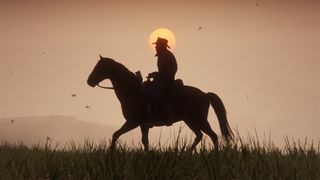
OK, so all that stuff about the real Old West not being full of outlaws and gunfights? Still true, but also true is people love outlaws and gunfights in their westerns. That’s where the story of the Van Der Linde gang comes into play.
Red Dead Redemption and its prequel - Red Dead Redemption 2 - are crowning achievements for Rockstar Games, building a well-developed collective of outlaws including protagonists John Marston and Arthur Morgan, gang leader and father figure Dutch Van Der Linde, revenge-minded widow Sadie Adler, and so many more. The proper approach to a TV series would be to put John, his wife Abigail and son Jack at the center of an ensemble thanks to their critical role throughout both games, while still devoting plenty of screen time to Arthur and the rest of the two-dozen strong gang.
Change is the thematic throughline of the games, and this should be central to any adaptation. In the case of the first Red Dead Redemption, we witness a world that violently paves over itself in the early 1910s without a care for what came before. And for the glass-half-full crowd, the actions of both Arthur and John show that it’s never too late to change your ways and attempt to right the wrongs of the past.
With so many interesting individuals and quirky characters to go along with thought-provoking themes as relevant to the 1800s as the 2000s, TV is the only way to do justice to this band of thieves.
BioShock
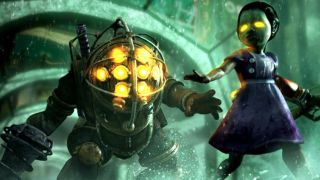
Let’s get this out of the way right now: “Would you kindly…” couldn’t possibly have the same effect in non-interactive media. But BioShock was always more than a mind-blowing mid-game twist. How many games heavily borrow from the works and objectivist philosophies of Ayn Rand? For that matter, how many TV series do that?
The murky Rapture of the first two BioShock games, with its distinct undersea art deco architecture and dimly lit environments at the bottom of the ocean, is the perfect setting for a season of claustrophobic, dystopian sci-fi/horror. Unlike film, a TV series will allow Jack to slowly discover the depravity that destroyed Andrew Ryan’s world.
Likewise, Columbia and its racist denizens among the clouds offer the type of biting satire that’s all too relevant in 2020. A season based on BioShock Infinite wouldn’t need heavy-handed writing to make the clear link to modern issues. Plus, the narrative following dimenson-hopping heroine Elizabeth and ex-Pinkerton agent Booker DeWitt deserves patience for their unique relationship to develop before that ending alters our understanding.
BioShock, from creator Ken Levine and published by 2K Games, would work best if the seasons are anthologized in much the same way as American Horror Story, with breadcrumbs along the way as connective threads between the flawed “uptopian” societies of Rapture, Columbia, or perhaps more worlds yet to be explored.
Fallout
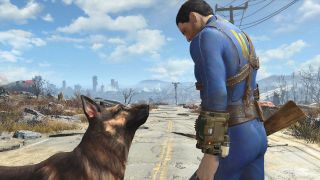
Horrors, both human and mutant, awaiting unsuspecting Vault dwellers emerging into the American wasteland long since ravaged by nuclear war. How will the Lone Wanderer survive the feral ghouls, deathclaws, super mutants and overall awful folks who prey upon one another? Tune in next week to find out!
Fallout’s vision of a radiated United States centuries from now is its central character, unlike most games on this list who lean on established individual heroes and villains. That offers plenty of freedom to tell original stories about morality in the face of survival that could surprise and shock even fans of the games, with no need to tell a story we’ve all played before.
You could argue that The Walking Dead has tread similar ground, with its post-apocalyptic setting and savagery in the face of survival, and feral ghouls really are just zombies no matter what they’re called. But key differences would allow a Fallout series to stand on its own. The Fallout games posit that their hellish world was doomed by humanity’s own need for conflict. It’s a recurring theme of the series, in which the survivors of post-war America fight amongst themselves over resources and beliefs.
Ever-present atomic radiation and 200 years of rebuilding society, and it’s the same story throughout the Bethesda-produced games. War, it seems, isn’t the only thing that never changes.
Final Fantasy

No film adaptation of a Final Fantasy game shall prosper. A TV series, on the other hand, offers a much better shot at making a successful transition for the long-running RPG titan from Square Enix.
Each season should take the same approach as the numbered games, telling unrelated stories but still maintaining all the little things that make a Final Fantasy game different from anything else — Chocobos are a requirement, but they aren’t the only must-have. As such, the anthology route is the way to go with epic stories set among worlds filled with randomly-encountered beasts and powerful mana.
Not every game in the series told a riveting story, but the hypothetical showrunner would still have plenty of strong candidates. Most will be clamoring for Cloud, Sephiroth, and Aerith in Season 1, but a bolder and better choice would be the steampunk-heavy Final Fantasy 6 and its edge-of-your-seat plot twists (Kefka, anyone?). The masses who only discovered this franchise when it hit the original PlayStation with Final Fantasy 7 will be in for a narrative treat, and then we can travel to Midgar for Season 2.
But why stop at just bringing the numbered games to live-action television? Final Fantasy Tactics’s plot ranks among the finest of the series. It’s time for Ivalice to reach a new audience, too.
Battlefield
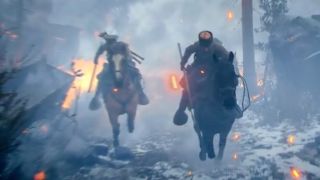
The Battlefield series from EA has bounced all over world history, but the tales contained in 2016’s Battlefield 1, set during Earth’s first true global conflict, make for a brilliant jumping off point for a unique TV series.
World War 1 is ripe for a TV treatment. If recent Oscar-nominated films from Steven Spielberg (War Horse) and Sam Mendes (1917) have taught us anything, it’s that heart-wrenching tales from The Great War can resonate with modern audiences. Even Wonder Woman, in her critically lauded smash hit film, took to the Western Front to shatter German High Command.
A WW1-set Battlefield show would be grounded in human stories, much like the ones depicted in Battlefield 1’s single-player campaign. The game drew praise for telling brief, disconnected stories from all over the globe throughout the four-year conflict.
That’s exactly how a TV series should play out. One season could deal with the infamous Gallipoli campaign, as was the case with the campaign story titled The Runner. Another could examine the legendary “Red Baron,” Manfred von Richthofen, and his exploits for the German Air Force. He’s more than just Snoopy’s nemesis, you know.
It would be hard to approach Band of Brothers-level accolades, as the World War 2 drama from HBO remains a classic nearly two decades later. But the world seems ready for a deeper exploration of the stories of the so-called “war to end all wars” to be depicted on the small screen.
Horizon Zero Dawn
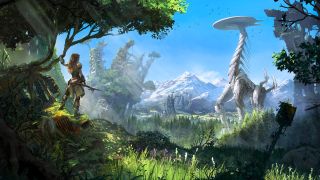
Of all the games on this list, Horizon Zero Dawn might have the most breakout potential of all for mainstream audiences. Guerrilla Games created quite a world in its 2017 PlayStation exclusive. More importantly, the studio birthed one of the strongest protagonists of the current console generation in Aloy, the child outcast who comes of age to become the hero of a post-apocalyptic world dominated by dangerous machines.
What makes Aloy’s odyssey so incredible isn’t just that she’s slick with a bow and arrows, chopping down hulking machines like a super soldier. It’s not even the fact that she’s a clone because, come on, how many clones have we seen in film, TV and games?
No, her appeal comes from how relatable this heroine and the internal struggle that drive her are. She wants to understand where she came from to make sense of who she is. We can all relate to that on some level.
The world Aloy inhabits is full of fascinating lore, and to condense her epic journey for a single film treatment would be downright criminal. Give her the air she deserves, stretch her story out over several TV seasons, and bring her story to the masses for both gamers and non-gamers alike.
Most Popular


